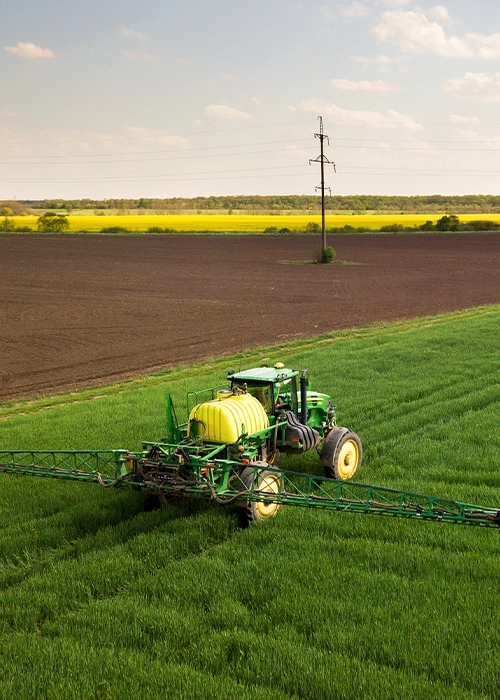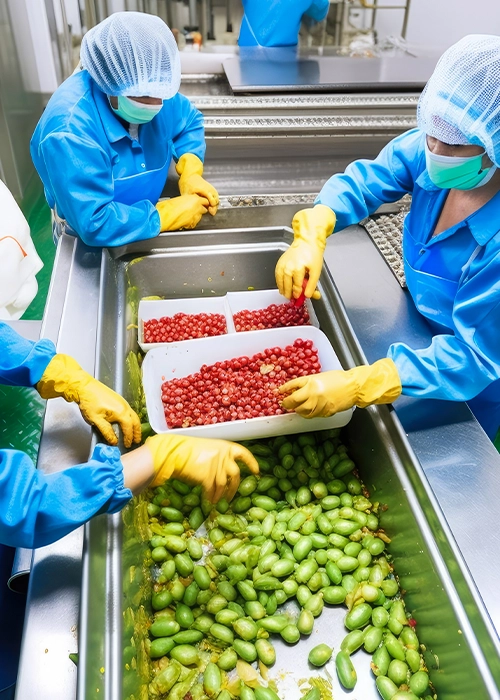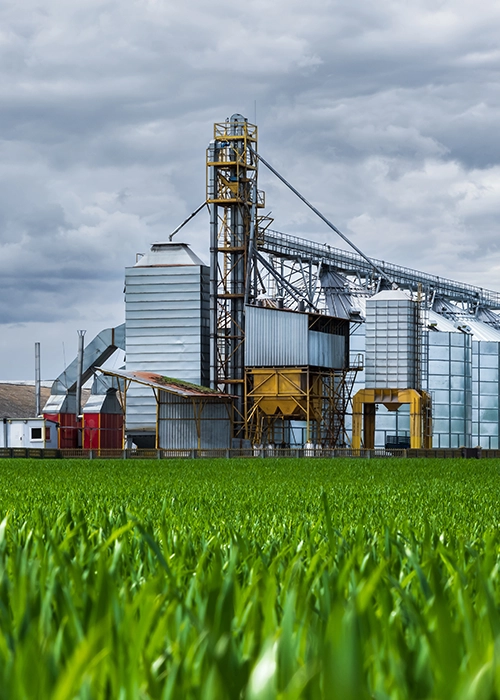India’s food processing technology industry is rapidly evolving into a promising sector with significant investment opportunities, supported by a robust food ecosystem. Favorable economic policies, increasing production capacities, appealing fiscal incentives, and strong market demand are fueling this growth.
According to a report by Ministry of Food Processing Industry (MOFPI), the Indian food industry output is anticipated to reach a size of US$ 535 billion by FY 2025-26. Presently, it commands a 10.4% share in exports and employs 11.6% of the workforce, with the unregistered segment providing livelihoods to 5.1 million individuals. Foreign direct investment (FDI) equity inflows amounted to US$ 12.5 billion from April 2000 to December 2023, accounting for 1.87% of total FDI equity flows.
The sector’s growth is underpinned by the expanding consumption of processed food that now extends to Tier-II and Tier-III cities, mirroring trends observed in metropolitan areas. Key sectors within this domain include grains, sugar, edible oils, beverages, and dairy products (Coinmen Consultants, 2019).
India has one of the world’s largest food processing industries. Gross value added of the industry has grown from Rs 1.79 lakh crore (US$21.5 billion) in 2016-17 to Rs 2.37 lakh crore (US$ 28.5 billion) in 2020-21, growing at a CAGR of 7.2%. The sector directly employs over 2 million individuals and contribute to 8.9% of the manufacturing value added (MVA), encompassing food and beverage sectors (UNIDO IAP, 2023). The sector has received around Rs 7,126 crore (US$ 857.7 million) worth of investments by the end of 2023 under the Production Linked Incentive (PLI) scheme for Food Processing.
As Indian food processing technology industry grows in size and sophistication, it is also increasingly showing potential for expansion into the international market. Exports* of processed food machinery reached US$ 3.1 billion in 2023, growing at a 5-year CAGR of 8%. Top export markets for India include the US, Singapore, Saudi Arabia, Nepal, Nigeria, UAE and Bangladesh.
The burgeoning food processing sector in the country also provides immense opportunity to global technology players for trade, investment and business collaboration. Imports* of these technologies have reached a value of US$ 5.5 billion in 2023, growing at a 5-year CAGR of 6%. Top supplying countries include China, Germany, Italy, Republic of Korea, Japan and the US.
The India’s food processing technology industry offers a range of opportunities for entrepreneurs/investors. Some of the key segments of opportunity are as follows:

India’s government has taken significant steps to ensure the growth and stability of the agricultural sector, positioning the country as a future leader in the global food economy.

India is one of the world’s largest producers of a variety of agricultural commodities. The country leads in the production of staples like rice, wheat, and pulses, and is a top producer of fruits, vegetables, and dairy.

India’s food processing sector is rapidly expanding, driven by technological advancements and increasing investments.

India’s population of over 1.4 billion people represents a massive consumer base with evolving dietary preferences and increasing disposable incomes.

India has made significant strides in improving its ease of doing business, particularly in the agricultural and food processing sectors.
As one of the largest producers and exporters of raw as well as processed/value added F&B products, India is a highly attractive destination for the food processing technology sector. The country is at the forefront of driving growth, entrepreneurial dynamism and cutting edge innovation in this sector, backed by its inherent economic drivers, rapidly growing market and supportive policy environment.
The global food processing equipment market is expected to reach US$ 69.2 billion in 2031, growing at a CAGR of 5.7% between 2023-31 (Transparency Market Research). The sector’s growth is driven by increasing consumer preferences for safe and hygienic processed foods that also offer high convenience and choice. Given the dynamic, and innovation-driven nature of this technology intensive sector, the ability to assess market demands and serve them in timely manner forms a key success factor.
Furthermore, AI and ML are critical interventions in the food processing technology industry. They provide opportunities to enhance efficiency, quality, safety, and sustainability throughout the entire production process and also drive innovation. The industry needs to play its role in addressing growing environment concerns such as reducing waste, greenhouse gas emissions, and water consumption.
© Trade Promotion Council of India. All Rights Reserved.